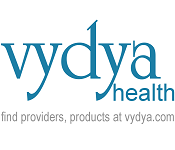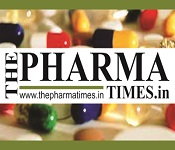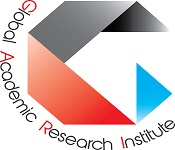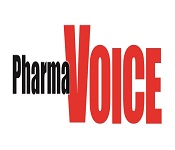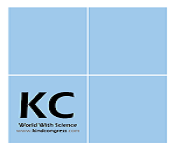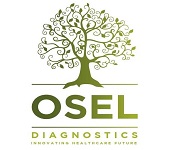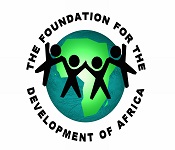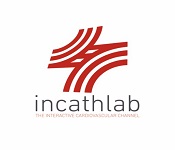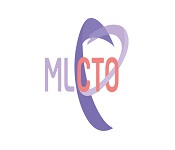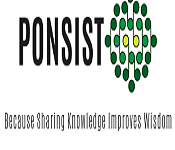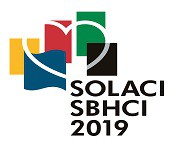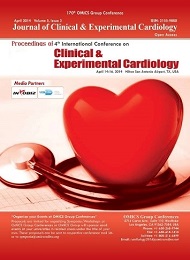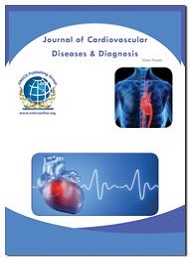Theme: Collegial interaction and scientific exchange for optimal cardiovascular health
Heart Failure Congress 2020
Why to go???
Heart Failure Congress is united by our shared commitment of rework vas care, with folks from round the world target obtaining some answers regarding Heart Diseases, this is your single most accessible opportunity to accomplish the greatest accumulation of individuals from the mending focuses, Universities, etc. This heart disease Congress 2020 can coordinate seems, disperse data, meet with revenant pattern and potential scientist and find name assertion at this 2-day event an artless instructional expertise that will extend your everyday practice. The Heart Failure Congress 2020 is meant to deliver associate fascinating forum to critically examine evidence-based methods yet as up to date best practices and clinical decision-making to succeed in our common objective of rising heart health of patients with disorder.
Attend this conference and you will:
Challenge the norm: Discuss, share your resent research and critique the latest in cardiovascular prevention and return to your practice ready to improve the care of your patients.
Lead the way: Local learning designed to empower you to transform your community through topics such as Lessons from the Leaders and Top Clinical Trials to Change Your Practice, as well as the latest in acute coronary syndrome, heart failure, valvular disease, arrhythmia and prevention.
Power your mind: Find Practical Solutions for everyday problems by using real-world approaches to guideline-driven care. Challenge your knowledge in participant driven sessions as per your interest.
Ignite conversation: Network with faculty from leading cardiovascular societies around the world in an intimate setting and create connections with colleagues through shared discussion and bi-directional learning.
Strive to be your best and join with us in our vision of a world where scientific exchange for optimal cardiovascular health and outcomes.
TARGET AUDIENCE
This conference is intended for practicing cardiologists, Cardiac Surgeons, Students (Young Researcher forum), Cardiology Researchers, Cardiology Faculty, From Medical University Colleges, Cardiology Associations and Societies members, Business Entrepreneurs, Training Institutes and Medical Devices Companies.
CONFERENCE OVERALL GOAL
The overall goal of this conference is to examine emerging trends and evidence-based strategies as well as contemporary best practices resulting in guideline-driven, practical cardiovascular prevention and management for patients with cardiovascular disease.
Track 1: Heart Diseases & Heart failure
Heart Disease is a major cause of disability and premature death throughout the world. The underlying pathology is atherosclerosis, which develops over many years and is usually advanced by the time symptoms occur, generally in middle age. Acute coronary events (heart attacks) and cerebrovascular events (strokes) frequently occur suddenly and are often fatal before medical care can be given. Heart Conferences promotes awareness against Risk factor modification which reduces clinical events and premature death in people with established cardiovascular disease as well as in those who are at high cardiovascular risk due to one or more risk factors.
Heart failure, sometimes known as congestive heart failure, occurs when your heart muscle doesn't pump blood. Certain conditions, such as narrowed arteries in your heart (coronary artery disease) or high blood pressure, gradually leave your heart too weak or stiff to fill and pump efficiently. Not all conditions that lead to heart failure can be reversed, but treatments can improve the signs and symptoms of heart failure and help you live longer. Lifestyle changes such as exercising, reducing salt in your diet, managing stress and losing weight can improve your quality of life.
Prevention : One way to prevent heart failure is to control conditions that cause heart failure, such as coronary artery disease, high blood pressure, diabetes or obesity.
Related Conferences
4th International Conference on Hypertension & Healthcare September 10-11, 2018. Amsterdam, Netherlands; 4th World Heart Congress, April 29-May 1, 2019, Kyoto Japan; Global Heart Failure Congress 2019, December 02-03, Tokyo Japan.; International Conference on Cardiovascular Imaging, November 19-21,2018, Melbourne, Australia. 6th World Heart Failure Congress, June 21- 24, 2018, Azerbaijan: Cardiovascular Innovations July 26-18, 2018 USA; 12thAustralian and New Zealand Endovascular Therapies Annual Meeting August 3-5, 2018 Australia; Pediatric and Adult Congenital Cardiology Review Course, August 19-14, 2018 USA; Transcatheter Cardiovascular Therapeutics September 21-25, 2018 USA.
Related Societies: American Heart Association Dallas, USA, North America ; Cardiology Society Los Angeles, USA, North America; Emirates Cardiac Society Macau, Hong Kong ; Japanese Circulation Society, Japan; British Junior Cardiologists Association London, UK; Cardiac Society of Australia and New Zealand Sydney, Australia; World Society of Arrhythmias Beijing, China; Philippine Heart Association Manila, Philippines; Asian Society for Cardiovascular Surgery (ASCVS) Fukuoka, Japan, Asia ; The Pan-African Society of Cardiology (PASCAR) Algeria, Africa ; Iranian Heart Foundation Iran ; Emirates Cardiac Society Macau, Hong Kong ; Saudi Heart Association Riyadh, Saudi Arabia ; Gulf Heart Association Macau, Hong Kong ; Indonesian Heart Association, Indonesia.
Track 2: Heart Diagnosis & Devices
Medical diagnosis is based on information from sources such as findings from a physical examination, interview with the patient or family or both, medical history of the patient and family, and clinical findings as reported by laboratory tests and radiologic studies. The diagnosis of heart failure can be carried out by various methods such as by Imaging techniques, Surgeries, electrophysiology, angiography, radiography etc. Medical care is very essential once the heart disease is diagnosed. The aim of treatment are stabilizing the condition, controlling symptoms over the long term, and providing a cure when possible. Stress reduction, diet, and lifestyle changes are key in managing heart failure, but the main stays of conventional care are drugs and surgery.
Heart Devices are electronic devices for assisting cardiac circulation, which is used either to partially or to completely replace the function of a Heart Failure. The evolution of these wireless cardiac monitoring devices is marking a new era in medicine and a transition from population-level health care to individualized medicine in which suitable patients are equipped with advanced biosensors that, in turn, have their data processed through sophisticated algorithms to predict events before they occur. The pacemaker, defibrillators, biosensors are the heart devices used in treatment of heart diseases.
Related Conferences
Heart Failure Congress 2019, December 02-03, Tokyo Japan. 6th World Heart Failure Congress, June 21- 24, 2018, Azerbaijan: Cardiovascular Innovations July 26-18, 2018 USA; 12th Australian and New Zealand Endovascular Therapies Annual Meeting August 3-5, 2018 Australia; Pediatric and Adult Congenital Cardiology Review Course, August 19-14, 2018 USA; Transcatheter Cardiovascular Therapeutics September 21-25, 2018 USA; 4th International Conference on Hypertension & Healthcare September 10-11, 2018. Amsterdam, Netherlands; 4th World Heart Congress, April 29-May 1, 2019, Kyoto Japan; Global Cardiology Summit, August 15-16,2018, Tokyo, Japan.
Related Societies: American Heart Association Dallas, USA, North America ; Cardiology Society Los Angeles, USA, North America; Emirates Cardiac Society Macau, Hong Kong ; Japanese Circulation Society, Japan; British Junior Cardiologists Association London, UK; Cardiac Society of Australia and New Zealand Sydney, Australia; World Society of Arrhythmias Beijing, China; Philippine Heart Association Manila, Philippines; Asian Society for Cardiovascular Surgery (ASCVS) Fukuoka, Japan, Asia ; The Pan-African Society of Cardiology (PASCAR) Algeria, Africa ; Iranian Heart Foundation Iran ; Emirates Cardiac Society Macau, Hong Kong ; Saudi Heart Association Riyadh, Saudi Arabia ; Gulf Heart Association Macau, Hong Kong ; Indonesian Heart Association, Indonesia.
Track 3: Cardiac Nursing and Healthcare
Cardiac nursing is a registered nurse who specializes to work with patients who suffer from various conditions of the cardiovascular system. Cardiac nurses help to treat conditions such as unstable angina, cardiomyopathy, coronary artery disease, congestive heart failure, myocardial infarction and cardiac dysrhythmia under the direction of a cardiologist. Cardiac nurses also perform postoperative care on a surgical unit, stress test evaluations, cardiac monitoring, vascular monitoring, and health assessments. Cardiac nurses work in many different environments, including coronary care units (CCU), cardiac catheterization, intensive care units (ICU), operating theatres, cardiac rehabilitation centers, clinical research, cardiac surgery wards, cardiovascular intensive care units (CVICU), and cardiac medical wards.
Related Conferences
4th International Conference on Hypertension & Healthcare September 10-11, 2018. Amsterdam, Netherlands; 4th World Heart Congress, April 29-May 1, 2019, Kyoto Japan; Global Cardiology Summit, August 15-16,2018, Tokyo, Japan; International Conference on Cardiovascular Imaging, November 19-21,2018, Melbourne, Australia. 6th World Heart Failure Congress, June 21- 24, 2018, Azerbaijan: Cardiovascular Innovations July 26-18, 2018 USA; 12th Australian and New Zealand Endovascular Therapies Annual Meeting August 3-5, 2018 Australia; Pediatric and Adult Congenital Cardiology Review Course, August 19-14, 2018 USA; Transcatheter Cardiovascular Therapeutics September 21-25, 2018 USA. Heart Failure Congress 2019, December 02-03, Tokyo Japan.
Related Societies: American Heart Association Dallas, USA, North America ; Cardiology Society Los Angeles, USA, North America; Emirates Cardiac Society Macau, Hong Kong ; Japanese Circulation Society, Japan; British Junior Cardiologists Association London, UK; Cardiac Society of Australia and New Zealand Sydney, Australia; World Society of Arrhythmias Beijing, China; Philippine Heart Association Manila, Philippines; Asian Society for Cardiovascular Surgery (ASCVS) Fukuoka, Japan, Asia ; The Pan-African Society of Cardiology (PASCAR) Algeria, Africa ; Iranian Heart Foundation Iran ; Emirates Cardiac Society Macau, Hong Kong ; Saudi Heart Association Riyadh, Saudi Arabia ; Gulf Heart Association Macau, Hong Kong ; Indonesian Heart Association, Indonesia.
Track 4: Pediatric & Geriatric Cardiology
Pediatric Cardiology concern all aspects of heart failure in infants, children, and adolescents, including embryology and anatomy, physiology and pharmacology, biochemistry, pathology, genetics, radiology, clinical aspects, investigative cardiology, electrophysiology and echocardiography, and cardiac surgery. Pediatric Cardiology is responsible for the diagnosis of congenital heart failure, performing diagnostic procedures such as echocardiograms, cardiac catheterizations and electrophysiology studies. The increasing number of neonates with congenital heart failure referred to the neonatal intensive care unit reflects the increasing awareness that the defects may be present. Chest radiography and ECG rarely assist in the neonatal diagnosis.
Related Conferences
International Conference on Cardiovascular Imaging, November 19-21,2018, Melbourne, Australia. Heart Failure Congress 2019, December 02-03, Tokyo Japan, 6th World Heart Failure Congress, June 21- 24, 2018, Azerbaijan: Cardiovascular Innovations July 26-18, 2018 USA; 12th Australian and New Zealand Endovascular Therapies Annual Meeting August 3-5, 2018 Australia; Pediatric and Adult Congenital Cardiology Review Course, August 19-14, 2018 USA; Transcatheter Cardiovascular Therapeutics September 21-25, 2018 USA; 4th International Conference on Hypertension & Healthcare September 10-11, 2018. Amsterdam, Netherlands; 4th World Heart Congress, April 29-May 1, 2019, Kyoto Japan; Global Cardiology Summit, August 15-16,2018, Tokyo, Japan.
Related Societies: American Heart Association Dallas, USA, North America ; Cardiology Society Los Angeles, USA, North America; Emirates Cardiac Society Macau, Hong Kong ; Japanese Circulation Society, Japan; British Junior Cardiologists Association London, UK; Cardiac Society of Australia and New Zealand Sydney, Australia; World Society of Arrhythmias Beijing, China; Philippine Heart Association Manila, Philippines; Asian Society for Cardiovascular Surgery (ASCVS) Fukuoka, Japan, Asia ; The Pan-African Society of Cardiology (PASCAR) Algeria, Africa ; Iranian Heart Foundation Iran ; Emirates Cardiac Society Macau, Hong Kong ; Saudi Heart Association Riyadh, Saudi Arabia ; Gulf Heart Association Macau, Hong Kong ; Indonesian Heart Association, Indonesia.
Track 5: Cardiovascular Surgeries
Cardiac surgery will be surgery on the heart performed by cardiac surgeons. Every now and again, it is done to treat inconveniences of ischemic coronary illness, amend inherent coronary illness, or treat valvular coronary illness from different causes including endocarditis, rheumatic coronary illness and atherosclerosis. It also includes heart transplantation. The advancement of cardiac surgery and cardiopulmonary bypass techniques has diminished the mortality rates of these surgeries to generally low positions. For instance, repairs of are currently assessed to have 4–6% death rates.
Related Conferences
4th International Conference on Hypertension & Healthcare September 10-11, 2018. Amsterdam, Netherlands; 4th World Heart Congress, April 29-May 1, 2019, Kyoto Japan; Global Cardiology Summit, August 15-16,2018, Tokyo, Japan; International Conference on Cardiovascular Imaging, November 19-21,2018, Melbourne, Australia. Heart Failure Congress 2019, December 02-03, Tokyo Japan, 6th World Heart Failure Congress, June 21- 24, 2018, Azerbaijan: Cardiovascular Innovations July 26-18, 2018 USA; 12th Australian and New Zealand Endovascular Therapies Annual Meeting August 3-5, 2018 Australia; Pediatric and Adult Congenital Cardiology Review Course, August 19-14, 2018 USA; Transcatheter Cardiovascular Therapeutics September 21-25, 2018 USA.
Related Societies: American Heart Association Dallas, USA, North America ; Cardiology Society Los Angeles, USA, North America; Emirates Cardiac Society Macau, Hong Kong ; Japanese Circulation Society, Japan; British Junior Cardiologists Association London, UK; Cardiac Society of Australia and New Zealand Sydney, Australia; World Society of Arrhythmias Beijing, China; Philippine Heart Association Manila, Philippines; Asian Society for Cardiovascular Surgery (ASCVS) Fukuoka, Japan, Asia ; The Pan-African Society of Cardiology (PASCAR) Algeria, Africa ; Iranian Heart Foundation Iran ; Emirates Cardiac Society Macau, Hong Kong ; Saudi Heart Association Riyadh, Saudi Arabia ; Gulf Heart Association Macau, Hong Kong ; Indonesian Heart Association, Indonesia.
Track 6: Cardiologists
A cardiologist is a doctor who specializes in the studies of heart failure & its functions & also diagnosis, treatment and preventing diseases related to heart failure and blood vessels. You might also visit a cardiologist so you can learn about your risk factors for heart failure and find out what measures you can take for better heart health. Cardiology is a field which is changing rapidly, New technologies as drug-eluting stents, assist devices for left ventricle, and novel inflammatory markers, and imaging modalities such as magnetic resonance imaging and 3D echocardiography.
Related Conferences
International Conference on Cardiovascular Imaging, November 19-21,2018, Melbourne, Australia. 6th World Heart Failure Congress, June 21- 24, 2018, Azerbaijan: Cardiovascular Innovations July 26-18, 2018 USA; 12th Australian and New Zealand Heart Failure Congress 2019, December 02-03, Tokyo Japan, Endovascular Therapies Annual Meeting August 3-5, 2018 Australia; Pediatric and Adult Congenital Cardiology Review Course, August 19-14, 2018 USA; Transcatheter Cardiovascular Therapeutics September 21-25, 2018 USA; 4th International Conference on Hypertension & Healthcare September 10-11, 2018. Amsterdam, Netherlands; 4th World Heart Congress, April 29-May 1, 2019, Kyoto Japan; Global Cardiology Summit, August 15-16,2018, Tokyo, Japan.
Related Societies: American Heart Association Dallas, USA, North America ; Cardiology Society Los Angeles, USA, North America; Emirates Cardiac Society Macau, Hong Kong ; Japanese Circulation Society, Japan; British Junior Cardiologists Association London, UK; Cardiac Society of Australia and New Zealand Sydney, Australia; World Society of Arrhythmias Beijing, China; Philippine Heart Association Manila, Philippines; Asian Society for Cardiovascular Surgery (ASCVS) Fukuoka, Japan, Asia ; The Pan-African Society of Cardiology (PASCAR) Algeria, Africa ; Iranian Heart Foundation Iran ; Emirates Cardiac Society Macau, Hong Kong ; Saudi Heart Association Riyadh, Saudi Arabia ; Gulf Heart Association Macau, Hong Kong ; Indonesian Heart Association, Indonesia.
Track 7: Cardiovascular Toxicology and Pharmacology
Cardiovascular pharmacology focuses on the fundamental mechanisms of cardiovascular cells and how drugs influence the heart failure and vascular system and those parts of the nervous and endocrine systems that participate in regulating cardiovascular function. Researchers observe the effects of drugs on arterial pressure, blood flow in specific vascular beds, release of physiological mediators, and neural activity arising from central nervous system structures.
Cardiovascular toxicology is concerned with the adverse effects of extrinsic and intrinsic stresses on the heart failure and vascular system. Extrinsic stress involves exposure to therapeutic drugs, natural products, and environmental toxicants. Intrinsic stress refers to exposure to toxic metabolites derived from nontoxic compounds such as those found in food additives and supplements. The intrinsic exposures also include secondary neurohormonal disturbance such as overproduction of inflammatory cytokines derived from pressure overload of the heart failure and counter-regulatory responses to hypertension. These toxic exposures result in alterations in biochemical pathways, defects in cellular structure and function, and pathogenesis of the affected cardiovascular system.
Related Conferences
4th International Conference on Hypertension & Healthcare September 10-11, 2018. Amsterdam, Netherlands; 4th World Heart Congress, April 29-May 1, 2019, Kyoto Japan; Global Cardiology Summit, August 15-16,2018, Tokyo, Japan; International Conference on Cardiovascular Imaging, November 19-21,2018, Melbourne, Australia. 6th World Heart Failure Congress, June 21- 24, 2018, Azerbaijan: Cardiovascular Innovations July 26-18, 2018 USA; Heart Failure Congress 2019, December 02-03, Tokyo Japan, 12thAustralian and New Zealand Endovascular Therapies Annual Meeting August 3-5, 2018 Australia; Pediatric and Adult Congenital Cardiology Review Course, August 19-14, 2018 USA; Transcatheter Cardiovascular Therapeutics September 21-25, 2018 USA.
Related Societies: American Heart Association Dallas, USA, North America ; Cardiology Society Los Angeles, USA, North America; Emirates Cardiac Society Macau, Hong Kong ; Japanese Circulation Society, Japan; British Junior Cardiologists Association London, UK; Cardiac Society of Australia and New Zealand Sydney, Australia; World Society of Arrhythmias Beijing, China; Philippine Heart Association Manila, Philippines; Asian Society for Cardiovascular Surgery (ASCVS) Fukuoka, Japan, Asia ; The Pan-African Society of Cardiology (PASCAR) Algeria, Africa ; Iranian Heart Foundation Iran ; Emirates Cardiac Society Macau, Hong Kong ; Saudi Heart Association Riyadh, Saudi Arabia ; Gulf Heart Association Macau, Hong Kong ; Indonesian Heart Association, Indonesia.
Track 8: Cardio-Oncology
Cardio-oncology is the intersection of heart failure conditions in patients who have been treated for cancer. New insights into how cancer therapies impact cardiovascular homeostasis and long-term effects on cancer survivors. In view of trends, as well as the cardiovascular toxicity potential of radiation and chemotherapy, cancer patients are exposed to cardiovascular morbidity and mortality more than ever before. Anticancer therapies can cause significant injury to the vasculature, resulting in angina, acute coronary syndromes (ACS), stroke, critical limb ischemia, arrhythmias, and heart failure (HF), independently from the direct myocardial or pericardial damage that might occur. Moreover, cancer is generally associated with a hypercoagulable state, which increases the risk of acute thrombotic events.
Related Conferences
International Conference on Cardiovascular Imaging, November 19-21,2018, Melbourne, Australia. 6th World Heart Failure Congress, June 21- 24, 2018, Azerbaijan: Cardiovascular Innovations July 26-18, 2018 USA; 12th Australian and New Zealand Endovascular Therapies Annual Meeting August 3-5, 2018 Australia; Pediatric and Adult Congenital Cardiology Review Course, August 19-14, 2018 USA; Transcatheter Cardiovascular Therapeutics September 21-25, 2018 USA; Heart Failure Congress 2019, December 02-03, Tokyo Japan, 4th International Conference on Hypertension & Healthcare September 10-11, 2018. Amsterdam, Netherlands; 4th World Heart Congress, April 29-May 1, 2019, Kyoto Japan; Global Cardiology Summit, August 15-16,2018, Tokyo, Japan .
Related Societies: American Heart Association Dallas, USA, North America ; Cardiology Society Los Angeles, USA, North America; Emirates Cardiac Society Macau, Hong Kong ; Japanese Circulation Society, Japan; British Junior Cardiologists Association London, UK; Cardiac Society of Australia and New Zealand Sydney, Australia; World Society of Arrhythmias Beijing, China; Philippine Heart Association Manila, Philippines; Asian Society for Cardiovascular Surgery (ASCVS) Fukuoka, Japan, Asia ; The Pan-African Society of Cardiology (PASCAR) Algeria, Africa ; Iranian Heart Foundation Iran ; Emirates Cardiac Society Macau, Hong Kong ; Saudi Heart Association Riyadh, Saudi Arabia ; Gulf Heart Association Macau, Hong Kong ; Indonesian Heart Association, Indonesia.
Track 9: Heart and Obesity
People with a body mass index (BMI) of 30 or higher are considered obese. The term obesity is used to describe the health condition of anyone significantly above his or her ideal healthy weight. Obesity increases the risk for heart failure and stroke. But it harms more than just the heart and blood vessel system. It's also a major cause of gallstones, osteoarthritis and respiratory problems. Obesity is intimately intertwined with multiple health conditions that underlie cardiovascular disease including high blood pressure, diabetes, and abnormal blood cholesterol. In addition, weight gain is a frequent consequence of heart-damaging lifestyle choices such as lack of exercise and a fat-laden diet. Obesity also can lead to heart failure. This is a serious condition in which your heart can't pump enough blood to meet your body's needs.
Related Conferences
4th International Conference on Hypertension & Healthcare September 10-11, 2018. Amsterdam, Netherlands; 4th World Heart Congress, April 29-May 1, 2019, Kyoto Japan; Global Cardiology Summit, August 15-16,2018, Tokyo, Japan; International Conference on Cardiovascular Imaging, November 19-21,2018, Melbourne, Australia. 6th World Heart Failure Congress, June 21- 24, 2018, Azerbaijan: Cardiovascular Innovations July 26-18, 2018 USA; 12th Australian and New Zealand Endovascular Therapies Annual Meeting August 3-5, 2018 Australia; Pediatric and Adult Congenital Cardiology Review Course, August 19-14, 2018 USA; Transcatheter Therapeutics September 21-25, 2018 USA, Heart Failure Congress 2019, December 02-03, Tokyo Japan.
Related Societies: American Heart Association Dallas, USA, North America ; Cardiology Society Los Angeles, USA, North America; Emirates Cardiac Society Macau, Hong Kong ; Japanese Circulation Society, Japan; British Junior Cardiologists Association London, UK; Cardiac Society of Australia and New Zealand Sydney, Australia; World Society of Arrhythmias Beijing, China; Philippine Heart Association Manila, Philippines; Asian Society for Cardiovascular Surgery (ASCVS) Fukuoka, Japan, Asia ; The Pan-African Society of Cardiology (PASCAR) Algeria, Africa ; Iranian Heart Foundation Iran ; Emirates Cardiac Society Macau, Hong Kong ; Saudi Heart Association Riyadh, Saudi Arabia ; Gulf Heart Association Macau, Hong Kong ; Indonesian Heart Association, Indonesia.
Track 10: Clinical Cardiology
Cardiology concerns with diseases and disorders of the heart, such as coronary artery disease and congestive heart failure. The field includes medical diagnosis and treatment of congenital heart defects, coronary artery disease, heart failure, vascular heart disease and electrophysiology. Although the heart and circulatory system make up your cardiovascular system. Heart works as a pump that pushes blood to the organs, tissues, and cells of your body. Blood delivers oxygen and nutrients to every cell and removes the carbon dioxide and waste products made by those cells.
Related Conferences
International Conference on Cardiovascular Imaging, November 19-21,2018, Melbourne, Australia. Heart Failure Congress 2019, December 02-03, Tokyo Japan 6th World Heart Failure Congress, June 21- 24, 2018, Azerbaijan: Cardiovascular Innovations July 26-18, 2018 USA; 12th Australian and New Zealand Endovascular Therapies Annual Meeting August 3-5, 2018 Australia; Pediatric and Adult Congenital Cardiology Review Course, August 19-14, 2018 USA; Transcatheter Cardiovascular Therapeutics September 21-25, 2018 USA; 4th International Conference on Hypertension & Healthcare September 10-11, 2018. Amsterdam, Netherlands; 4th World Heart Congress, April 29-May 1, 2019, Kyoto Japan; Global Cardiology Summit, August 15-16,2018, Tokyo, Japan.
Related Societies: American Heart Association Dallas, USA, North America ; Cardiology Society Los Angeles, USA, North America; Emirates Cardiac Society Macau, Hong Kong ; Japanese Circulation Society, Japan; British Junior Cardiologists Association London, UK; Cardiac Society of Australia and New Zealand Sydney, Australia; World Society of Arrhythmias Beijing, China; Philippine Heart Association Manila, Philippines; Asian Society for Cardiovascular Surgery (ASCVS) Fukuoka, Japan, Asia ; The Pan-African Society of Cardiology (PASCAR) Algeria, Africa ; Iranian Heart Foundation Iran ; Emirates Cardiac Society Macau, Hong Kong ; Saudi Heart Association Riyadh, Saudi Arabia ; Gulf Heart Association Macau, Hong Kong ; Indonesian Heart Association, Indonesia.
Track 11: Cardiac Regeneration
Cardiac Regeneration is a broad effort and comes into existence when the cardiac tissue is damaged and failed to regenerate the myocardium. Where the main principle behind cardiac regeneration is Reparative stem cells have the capability to restore function to damaged tissue by renewing cell growth in cardiac cells destroyed by heart disease. Reparative tools have been engineered to restore damaged heart tissue and function using the body's natural ability to regenerate. Current therapies include such as adult stem and precursor cells, Nuclear dynamics of the heart growth, Reprogramming Fibroblasts to Cardiomyocytes, Stem cells and cell therapy.
Related Conferences
4th International Conference on Hypertension & Healthcare September 10-11, 2018. Amsterdam, Netherlands; 4th World Heart Congress, April 29-May 1, 2019, Kyoto Japan; Global Cardiology Summit, August 15-16,2018, Tokyo, Japan; International Conference on Cardiovascular Imaging, November 19-21,2018, Melbourne, Australia. 6th World Heart Failure Congress, June 21- 24, 2018, Heart Failure Congress 2019, December 02-03, Tokyo Japan Azerbaijan: Cardiovascular Innovations July 26-18, 2018 USA; 12th Australian and New Zealand Endovascular Therapies Annual Meeting August 3-5, 2018 Australia; Pediatric and Adult Congenital Cardiology Review Course, August 19-14, 2018 USA; Transcatheter Cardiovascular Therapeutics September 21-25, 2018 USA.
Related Societies: American Heart Association Dallas, USA, North America ; Cardiology Society Los Angeles, USA, North America; Emirates Cardiac Society Macau, Hong Kong ; Japanese Circulation Society, Japan; British Junior Cardiologists Association London, UK; Cardiac Society of Australia and New Zealand Sydney, Australia; World Society of Arrhythmias Beijing, China; Philippine Heart Association Manila, Philippines; Asian Society for Cardiovascular Surgery (ASCVS) Fukuoka, Japan, Asia ; The Pan-African Society of Cardiology (PASCAR) Algeria, Africa ; Iranian Heart Foundation Iran ; Emirates Cardiac Society Macau, Hong Kong ; Saudi Heart Association Riyadh, Saudi Arabia ; Gulf Heart Association Macau, Hong Kong ; Indonesian Heart Association, Indonesia.
Track 12: Cardiovascular Engineering
Cardiovascular Engineering stimulates innovative methods and technological advancements in the basic understanding of the cardiovascular system and in cardiovascular diagnosis and treatment applications. Original Contributions outline new concepts and applications in cardiovascular mechanics, cardiology applications and diagnostic methods, cardiac and vascular imaging, devices and instrumentation, hemodynamic monitoring and measurements, cardiac assistance, vascular grafts and artificial hearts, cardiac electrophysiology techniques, computer modeling and drug delivery systems.
Related Conferences
International Conference on Cardiovascular Imaging, November 19-21,2018, Melbourne, Australia. Heart Failure Congress 2019, December 02-03, Tokyo Japan, 6th World Heart Failure Congress, June 21- 24, 2018, Azerbaijan: Cardiovascular Innovations July 26-18, 2018 USA; 12th Australian and New Zealand Endovascular Therapies Annual Meeting August 3-5, 2018 Australia; Pediatric and Adult Congenital Cardiology Review Course, August 19-14, 2018 USA; Transcatheter Cardiovascular Therapeutics September 21-25, 2018 USA; 4th International Conference on Hypertension & Healthcare September 10-11, 2018. Amsterdam, Netherlands; 4th World Heart Congress, April 29-May 1, 2019, Kyoto Japan; Global Cardiology Summit, August 15-16,2018, Tokyo, Japan.
Related Societies: American Heart Association Dallas, USA, North America ; Cardiology Society Los Angeles, USA, North America; Emirates Cardiac Society Macau, Hong Kong ; Japanese Circulation Society, Japan; British Junior Cardiologists Association London, UK; Cardiac Society of Australia and New Zealand Sydney, Australia; World Society of Arrhythmias Beijing, China; Philippine Heart Association Manila, Philippines; Asian Society for Cardiovascular Surgery (ASCVS) Fukuoka, Japan, Asia ; The Pan-African Society of Cardiology (PASCAR) Algeria, Africa ; Iranian Heart Foundation Iran ; Emirates Cardiac Society Macau, Hong Kong ; Saudi Heart Association Riyadh, Saudi Arabia ; Gulf Heart Association Macau, Hong Kong ; Indonesian Heart Association, Indonesia.
Track 13: Nuclear Cardiology & Cardiac CT
Heart Failure is the leading cause of death in the western world. Each year in the U.S.A, more than 500,000 men and women die from coronary artery disease. During the past two decades, major strides have been made in the diagnosis and treatment of heart failure. Nuclear Cardiology has played a pivotal role in establishing the diagnosis of heart disease and in the assessment of disease extent and the prediction of outcomes in the setting of coronary artery disease. Nuclear cardiology studies use noninvasive techniques to assess myocardial blood flow, evaluate the pumping function of the heart as well as visualize the size and location of a heart attack. Among the techniques of nuclear cardiology, myocardial perfusion imaging is the most widely used.
A cardiac CT scan is a painless imaging test that uses x rays to take many detailed pictures of your heart and its blood vessels. Different CT scanners are used for different purposes. A multi detector CT is a very fast type of CT scanner that can produce high-quality pictures of the beating heart and can detect calcium or blockages in the coronary arteries. An electron beam CT scanner also can show calcium in coronary arteries. The information obtained can help evaluate whether you are at increased risk for heart attack.
Related Conferences
4th International Conference on Hypertension & Healthcare September 10-11, 2018. Amsterdam, Netherlands; 4th World Heart Congress, April 29-May 1, 2019, Kyoto Japan; Global Cardiology Summit, August 15-16,2018, Tokyo, Japan; International Conference on Cardiovascular Imaging, November 19-21,2018, Melbourne, Australia. 6th World Heart Failure Congress, June 21- 24, 2018, Azerbaijan: Cardiovascular Innovations July 26-18, 2018 USA; 12th Australian and New Zealand Endovascular Therapies Annual Meeting August 3-5, 2018 Australia; Pediatric and Adult Congenital Cardiology Review Course, August 19-14, 2018 USA; Transcatheter Cardiovascular Therapeutics September 21-25, 2018 USA. Heart Failure Congress 2019, December 02-03, Tokyo Japan.
Related Societies: American Heart Association Dallas, USA, North America ; Cardiology Society Los Angeles, USA, North America; Emirates Cardiac Society Macau, Hong Kong ; Japanese Circulation Society, Japan; British Junior Cardiologists Association London, UK; Cardiac Society of Australia and New Zealand Sydney, Australia; World Society of Arrhythmias Beijing, China; Philippine Heart Association Manila, Philippines; Asian Society for Cardiovascular Surgery (ASCVS) Fukuoka, Japan, Asia ; The Pan-African Society of Cardiology (PASCAR) Algeria, Africa ; Iranian Heart Foundation Iran ; Emirates Cardiac Society Macau, Hong Kong ; Saudi Heart Association Riyadh, Saudi Arabia ; Gulf Heart Association Macau, Hong Kong ; Indonesian Heart Association, Indonesia.
Track 14: Molecular Cardiology and Hypertension
Molecular cardiology is a new area of cardiovascular medicine that aims to apply molecular biological techniques for the mechanistic investigation, diagnosis, prevention, and treatment of heart failure As an emerging discipline, it has changed our conceptual thinking of cardiovascular development, disease etiology, and pathophysiology. Although molecular cardiology is still at a very early stage, it has opened a promising avenue for understanding and controlling cardiovascular disease. A great interest of the laboratory is the identification of novel circulating factors that regulate cardiac biology, including aging and hypertrophy.
Hypertension is the single most important risk factor for stroke. It causes about 50 per cent of ischemic strokes and also increases the risk of hemorrhagic stroke. The damage that hypertension causes happens over time and is often only diagnosed when considerable damage has already happened to the body’s blood vessels. The increase in cardiovascular risk has primarily been described in terms of elevated systolic pressure in those over age 60 years and elevation in diastolic pressure in younger individuals.
Related Conferences
International Conference on Cardiovascular Imaging, November 19-21,2018, Melbourne, Australia. 6th World Heart Failure Congress, June 21- 24, 2018, Azerbaijan, Heart Failure Congress 2019, December 02-03, Tokyo Japan, Cardiovascular Innovations July 26-18, 2018 USA; 12th Australian and New Zealand Endovascular Therapies Annual Meeting August 3-5, 2018 Australia; Pediatric and Adult Congenital Cardiology Review Course, August 19-14, 2018 USA; Transcatheter Cardiovascular Therapeutics September 21-25, 2018 USA; 4th International Conference on Hypertension & Healthcare September 10-11, 2018. Amsterdam, Netherlands; 4th World Heart Congress, April 29-May 1, 2019, Kyoto Japan; Global Cardiology Summit, August 15-16,2018, Tokyo, Japan.
Related Societies: American Heart Association Dallas, USA, North America ; Cardiology Society Los Angeles, USA, North America; Emirates Cardiac Society Macau, Hong Kong ; Japanese Circulation Society, Japan; British Junior Cardiologists Association London, UK; Cardiac Society of Australia and New Zealand Sydney, Australia; World Society of Arrhythmias Beijing, China; Philippine Heart Association Manila, Philippines; Asian Society for Cardiovascular Surgery (ASCVS) Fukuoka, Japan, Asia ; The Pan-African Society of Cardiology (PASCAR) Algeria, Africa ; Iranian Heart Foundation Iran ; Emirates Cardiac Society Macau, Hong Kong ; Saudi Heart Association Riyadh, Saudi Arabia ; Gulf Heart Association Macau, Hong Kong ; Indonesian Heart Association, Indonesia.
Track 15: Vascular Heart Disease
Vascular heart disease is characterized by damage to or a defect in one of the four heart valves: the mitral, aortic, tricuspid or pulmonary. In vascular heart disease, the valves become too narrow and hardened (stenosis) to open fully or are unable to close completely (incompetent). Valve disease symptoms can occur suddenly, depending upon how quickly the disease develops. Many of the symptoms are similar to those associated with congestive heart failure, such as shortness of breath and wheezing after limited physical exertion and swelling of the feet, ankles, hands or abdomen (edema). The severity of vascular heart disease varies. In mild cases there may be no symptoms, while in advanced cases, vascular heart disease may lead to congestive heart failure and other complications. Treatment depends upon the extent of the disease.
Related Conferences
4th International Conference on Hypertension & Healthcare September 10-11, 2018. Amsterdam, Netherlands; 4th World Heart Congress, April 29-May 1, 2019, Kyoto Japan; Global Cardiology Summit, August 15-16,2018, Tokyo, Japan; International Conference on Cardiovascular Imaging, November 19-21,2018, Melbourne, Australia. 6th World Heart Failure Congress, June 21- 24, 2018, Azerbaijan: Cardiovascular Innovations July 26-18, 2018 USA, Heart Failure Congress 2019, December 02-03, Tokyo Japan, 12th Australian and New Zealand Endovascular Therapies Annual Meeting August 3-5, 2018 Australia; Pediatric and Adult Congenital Cardiology Review Course, August 19-14, 2018 USA; Transcatheter Cardiovascular Therapeutics September 21-25, 2018 USA.
Related Societies: American Heart Association Dallas, USA, North America ; Cardiology Society Los Angeles, USA, North America; Emirates Cardiac Society Macau, Hong Kong ; Japanese Circulation Society, Japan; British Junior Cardiologists Association London, UK; Cardiac Society of Australia and New Zealand Sydney, Australia; World Society of Arrhythmias Beijing, China; Philippine Heart Association Manila, Philippines; Asian Society for Cardiovascular Surgery (ASCVS) Fukuoka, Japan, Asia ; The Pan-African Society of Cardiology (PASCAR) Algeria, Africa ; Iranian Heart Foundation Iran ; Emirates Cardiac Society Macau, Hong Kong ; Saudi Heart Association Riyadh, Saudi Arabia ; Gulf Heart Association Macau, Hong Kong ; Indonesian Heart Association, Indonesia.
Track 16: Myocardial and Pericardial Disease
Damage to the heart muscle most often develops from coronary artery disease (CAD) related myocardial infarction, usually in people in their middle or later decades. Inherited forms of heart muscle disease (Cardiomyopathies) are the most prominent cause of myocardial disease in the young. Myocardial infarction and cardiomyopathies are the major causes of heart failure and arrhythmic sudden death.
Pericardial disease or pericarditis is an inflammation of the pericardium. Pericarditis is characterized by pericardial friction rub (an audible sound of rubbing heard along with the heart beat), chest pain and changes in an electrocardiogram (ECG, test to evaluate the heart failure function). It is seen more commonly in men than in women. Chronic pericarditis may occur due to the recurrence of acute pericarditis or due to a chronic infection such as tuberculosis.
Related Conferences
International Conference on Cardiovascular Imaging, November 19-21,2018, Melbourne, Australia. Heart Failure Congress 2019, December 02-03, Tokyo Japan, 6th World Heart Failure Congress, June 21- 24, 2018, Azerbaijan: Cardiovascular Innovations July 26-18, 2018 USA; 12th Australian and New Zealand Endovascular Therapies Annual Meeting August 3-5, 2018 Australia; Pediatric and Adult Congenital Cardiology Review Course, August 19-14, 2018 USA; Transcatheter Cardiovascular Therapeutics September 21-25, 2018 USA; 4th International Conference on Hypertension & Healthcare September 10-11, 2018. Amsterdam, Netherlands; 4th World Heart Congress, April 29-May 1, 2019, Kyoto Japan; Global Cardiology Summit, August 15-16,2018, Tokyo, Japan.
Related Societies: American Heart Association Dallas, USA, North America ; Cardiology Society Los Angeles, USA, North America; Emirates Cardiac Society Macau, Hong Kong ; Japanese Circulation Society, Japan; British Junior Cardiologists Association London, UK; Cardiac Society of Australia and New Zealand Sydney, Australia; World Society of Arrhythmias Beijing, China; Philippine Heart Association Manila, Philippines; Asian Society for Cardiovascular Surgery (ASCVS) Fukuoka, Japan, Asia ; The Pan-African Society of Cardiology (PASCAR) Algeria, Africa ; Iranian Heart Foundation Iran ; Emirates Cardiac Society Macau, Hong Kong ; Saudi Heart Association Riyadh, Saudi Arabia ; Gulf Heart Association Macau, Hong Kong ; Indonesian Heart Association, Indonesia.
Track 17: Pediatric Cardiology
Pediatric Cardiology is responsible for the diagnosis of congenital heart failure defects, performing diagnostic procedures such as echocardiograms, cardiac catheterizations, and electrophysiology studies, and for the ongoing management of the sequelae of heart failure in infants, children and adolescents.
Related Conferences
4th International Conference on Hypertension & Healthcare September 10-11, 2018. Amsterdam, Netherlands; 4th World Heart Congress, April 29-May 1, 2019, Kyoto Japan; Global Cardiology Summit, August 15-16,2018, Tokyo, Japan; International Conference on Cardiovascular Imaging, November 19-21,2018, Melbourne, Australia. 6th World Heart Failure Congress, June 21- 24, 2018, Azerbaijan, Heart Failure Congress 2019, December 02-03, Tokyo Japan, Cardiovascular Innovations July 26-18, 2018 USA; 12th Australian and New Zealand Endovascular Therapies Annual Meeting August 3-5, 2018 Australia; Pediatric and Adult Congenital Cardiology Review Course, August 19-14, 2018 USA; Transcatheter Cardiovascular Therapeutics September 21-25, 2018 USA.
Related Societies: American Heart Association Dallas, USA, North America ; Cardiology Society Los Angeles, USA, North America; Emirates Cardiac Society Macau, Hong Kong ; Japanese Circulation Society, Japan; British Junior Cardiologists Association London, UK; Cardiac Society of Australia and New Zealand Sydney, Australia; World Society of Arrhythmias Beijing, China; Philippine Heart Association Manila, Philippines; Asian Society for Cardiovascular Surgery (ASCVS) Fukuoka, Japan, Asia ; The Pan-African Society of Cardiology (PASCAR) Algeria, Africa ; Iranian Heart Foundation Iran ; Emirates Cardiac Society Macau, Hong Kong ; Saudi Heart Association Riyadh, Saudi Arabia ; Gulf Heart Association Macau, Hong Kong ; Indonesian Heart Association, Indonesia.
Track 18: Arrhythmias
An arrhythmia is a problem with the rate or rhythm heartbeat. It means that heart beats too quickly, too slowly, or with an irregular pattern. Many factors can affect heart's rhythm, such as having had a heart failure, smoking, congenital heart failure defects, and stress. Some substances or medicines may also cause arrhythmias. There are four main types of arrhythmia: extra beats, supraventricular tachycardias, ventricular arrhythmias, and brady arrhythmias Most arrhythmias can be effectively treated. Treatments may include medications, medical procedures such as a pacemaker, and surgery. Medications for a fast heart rate may include beta blockers or agents that attempt to restore a normal heart rhythm such as procainamide.
Related Conferences
International Conference on Cardiovascular Imaging, November 19-21,2018, Melbourne, Australia. 6th World Heart Failure Congress, June 21- 24, 2018, Azerbaijan: Cardiovascular Innovations July 26-18, 2018 USA; 12th Australian and New Zealand Endovascular Therapies Annual Meeting August 3-5, 2018 Australia; Pediatric and Adult Congenital Cardiology Review Course, August 19-14, 2018 USA; Transcatheter Cardiovascular Therapeutics September 21-25, 2018 USA Heart Failure Congress 2019, December 02-03, Tokyo Japan, 4th International Conference on Hypertension & Healthcare September 10-11, 2018. Amsterdam, Netherlands; 4th World Heart Congress, April 29-May 1, 2019, Kyoto Japan; Global Cardiology Summit, August 15-16,2018, Tokyo, Japan.
Related Societies: American Heart Association Dallas, USA, North America ; Cardiology Society Los Angeles, USA, North America; Emirates Cardiac Society Macau, Hong Kong ; Japanese Circulation Society, Japan; British Junior Cardiologists Association London, UK; Cardiac Society of Australia and New Zealand Sydney, Australia; World Society of Arrhythmias Beijing, China; Philippine Heart Association Manila, Philippines; Asian Society for Cardiovascular Surgery (ASCVS) Fukuoka, Japan, Asia ; The Pan-African Society of Cardiology (PASCAR) Algeria, Africa ; Iranian Heart Foundation Iran ; Emirates Cardiac Society Macau, Hong Kong ; Saudi Heart Association Riyadh, Saudi Arabia ; Gulf Heart Association Macau, Hong Kong ; Indonesian Heart Association, Indonesia.
Track 19: Critical Cardiac Care
Critical cardiac care (CIC) which is also known as coronary care unit (CCU) is a hospital ward specialized in the care of patients with heart attacks, unstable angina, cardiac dysrhythmia and (in practice) various other cardiac conditions that require continuous monitoring and treatment or first aid treatment till the doctor comes. There are also units available in the hospitals to take care of the emergency situation. The Cardiac intensive care unit (CICU) is a specialized ICU dealing with cardiac patients and is usually staffed by cardiologists. It offers critical care staff especially trained in acute coronary syndromes and has additional technology such as intra-aortic balloon pumps, etc.
Related Conferences
4th International Conference on Hypertension & Healthcare September 10-11, 2018. Amsterdam, Netherlands; 4th World Heart Congress, April 29-May 1, 2019, Kyoto Japan; Global Cardiology Summit, August 15-16,2018, Tokyo, Japan; International Conference on Cardiovascular Imaging, November 19-21,2018,Melbourne,Australia. 6th World Heart Failure Congress, June 21- 24, 2018, Azerbaijan: Cardiovascular Innovations July 26-18, 2018 USA, Heart Failure Congress 2019, December 02-03, Tokyo Japan, 12th Australian and New Zealand Endovascular Therapies Annual Meeting August 3-5, 2018 Australia; Pediatric and Adult Congenital Cardiology Review Course, August 19-14, 2018 USA; Transcatheter Cardiovascular Therapeutics September 21-25, 2018 USA.
Related Societies: American Heart Association Dallas, USA, North America ; Cardiology Society Los Angeles, USA, North America; Emirates Cardiac Society Macau, Hong Kong ; Japanese Circulation Society, Japan; British Junior Cardiologists Association London, UK; Cardiac Society of Australia and New Zealand Sydney, Australia; World Society of Arrhythmias Beijing, China; Philippine Heart Association Manila, Philippines; Asian Society for Cardiovascular Surgery (ASCVS) Fukuoka, Japan, Asia ; The Pan-African Society of Cardiology (PASCAR) Algeria, Africa ; Iranian Heart Foundation Iran ; Emirates Cardiac Society Macau, Hong Kong ; Saudi Heart Association Riyadh, Saudi Arabia ; Gulf Heart Association Macau, Hong Kong ; Indonesian Heart Association, Indonesia.
Track 20: Cardiovascular Diseases and Nutrition
The Cardiovascular diseases affecting the developed world have at their core atherosclerosis and hypertension, both of which are profoundly affected by diet and can be approached, at least in part, from a nutritional point of view, as can the increasing “epidemic” of obesity. Diet is a multi-component mixture of many nutrients, which may interact with one another. The definitive study of nutrients and their impact on cardiovascular disease can be a daunting enterprise. Many dietary risk factors contribute to these diseases in various environmental and ethnic settings. These risk factors are often in evidence in youth so that preventive measures must be initiated early in life.
Related Conferences
International Conference on Cardiovascular Imaging, November 19-21,2018, Melbourne, Australia. 6th World Heart Failure Congress, June 21- 24, 2018, Azerbaijan: Cardiovascular Innovations July 26-18, 2018 USA; 12th Australian and New Zealand Endovascular Therapies Annual Meeting August 3-5, 2018 Australia; Pediatric and Adult Congenital Cardiology Review Course, August 19-14, 2018 USA; Transcatheter Cardiovascular Therapeutics September 21-25, 2018 USA; 4th International Conference on Hypertension & Healthcare September 10-11, 2018. Amsterdam, Netherlands; 4th World Heart Congress, April 29-May 1, 2019, Kyoto Japan; Global Cardiology Summit, August 15-16,2018, Tokyo, Japan, Heart Failure Congress 2019, December 02-03, Tokyo Japan.
Related Societies: American Heart Association Dallas, USA, North America ; Cardiology Society Los Angeles, USA, North America; Emirates Cardiac Society Macau, Hong Kong ; Japanese Circulation Society, Japan; British Junior Cardiologists Association London, UK; Cardiac Society of Australia and New Zealand Sydney, Australia; World Society of Arrhythmias Beijing, China; Philippine Heart Association Manila, Philippines; Asian Society for Cardiovascular Surgery (ASCVS) Fukuoka, Japan, Asia ; The Pan-African Society of Cardiology (PASCAR) Algeria, Africa ; Iranian Heart Foundation Iran ; Emirates Cardiac Society Macau, Hong Kong ; Saudi Heart Association Riyadh, Saudi Arabia ; Gulf Heart Association Macau, Hong Kong ; Indonesian Heart Association, Indonesia.
International Conference on Cardiology and Heart Failure welcomes presenters, exhibitors and attendees from all over the globe to Tokyo, Japan during December 02-03, 2019. We invite you to unite us at the International Conference on Cardiology and Heart Failure where you will have an intelligible experience with scholars from overseas.
The organizing committee is gearing up for an exciting and informative conference program including plenary lectures, symposia, cardiology workshops on a variety of topics, poster presentations and various programs for participants from all over the globe which provides an introduction to diseases of cardiovascular system, how they are diagnosed and prevented by treatment. Young researchers from different university keen to learn how to identify the integral links between anatomy, physiology and pathology and other aspects for ambulatory and hospitalized patients who have cardiovascular and hypertension disorders.
Growth of Cardiology Market: -
The market for cardiology technologies reached an estimated $15.3 billion in 2012. According to a new study by Smithers Apex – The Future of Coronary Artery Disease Medical Devices to 2020 – it will grow to $22.5 billion by 2020, with a year-on-year increase of 9.1% Demand for coronary artery disease medical devices will grow through 2021 as clinically viable and cost-effective solutions are developed. The report covers three major segments of cardiology surgery, devices and drugs market which includes surgeries, devices and drugs. Cardiovascular diseases are the number one cause of death globally. Some of the major CVDs include coronary heart diseases, stroke, hypertensive heart diseases, inflammatory heart diseases, rheumatoid heart diseases and others. Coronary heart diseases are the leading cause of death followed by strokes.
Importance and Scope
Heart Failure Congress 2019 will be the platform for all the cardiologists, electro physiologists, cardio-surgeons, nurses, research scholars, students who are working in this field to exchange their knowledge related to Cardiology and Cardiac Surgery. This international event is an effort to find an alternative for invasive imaging technique against heart diseases and heart failure conditions.
Why Tokyo?
Tokyo is the cultural and economic capital of japan, and its world class tourist attractions renowned across the globe. The greater Tokyo area is bursting with attractions for visitors of all ages. The greater Tokyo area is the most popular metropolitan area in the world. Tokyo ranked first in the Global Economic Power Index and fourth in the Global Cities Index cleanliness of streets Tokyo ranked first in the world in the Safe Cities Index. The 2016 edition of QS Best Student Cities ranked Tokyo as the 3rd-best city in the world to be a university student. Tokyo hosted the 1964 Summer Olympics, the 1979 G-7 summits, the 1986 G-7 summits, and the 1993 G-7 summits, and will host the 2020 Summer Olympics and the 2020 Summer Paralympics. It is the world's most-visited city as measured by international arrivals and has the world's largest city airport system measured by passenger traffic. Tokyo is also the headquarters of the United Nations University. Tokyo is bursting at the seams with attractions that offer insight into Japan long and fascinating history.
List of Hospitals & Research Centre:
- Centre for the Mentally and Physically Handicapped -Tokyo, Japan
- Jisei University School of Medicine Hospital - Tokyo, Japan
- Keio University Hospital - Tokyo, Japan
- Juntendo Hospital - Tokyo, Japan
- National Cancer Centre
- King Clinic, The (Sanno Hospital) - Omotesando, Tokyo, Japan
- Tokyo Medical University Hospital
- National Hospital Organization Tokyo Medical Centre
- Self-Défense Forces Central Hospital
- St. Luke's International Hospital
- International Catholic Hospital (Seibo Hospital)
- NTT Medical Centre Tokyo
- University of Tokyo Hospital
Japan:
- Aichi Cancer Centre Hospital
- Aichi Saiseikai Hospital
- Japan Community Health Care Organization Chukyo Hospital
- Japanese Red Cross Nagoya Daiichi Hospital
- Nagoya City East Medical Centre
- Meitetsu Hospital
- Meijo Hospital
- Holy Spirit Hospital
- Nagoya City West Medical Centre
- Nagoya City University Hospital
- Chubu Rosai Hospital
Asia Pacific and Middle East:
-
Ramsay Health Care Limited
-
IHH Healthcare Berhad
-
Bumrungrad Hospital Public Company Limited
-
Apollo Hospitals Enterprise Ltd
-
Concord Medical Services Holdings Limited
-
MIRACA Holdings Inc
-
Fortis Healthcare Ltd
-
Raffles Medical Group
-
KPJ Healthcare Bhd
-
Bangkok Dusit Medical Services Public Company Limited
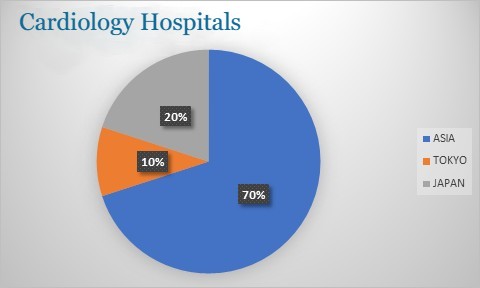
Industries Associated with Cardiology Research Worldwide:
- Boston Scientific Corporation
- Cordis Corporation
- BIOTRONIK SE & Co. KG
- Biosense Webster, Inc.
- Terumo Corporation
- Edwards Life sciences Corporation
- Sorin S. P. A
- MAQUET GmbH & Co. KG
- Medtronic, Inc
- Abbott Laboratories
- St. Jude Medical, Inc
- Philips Healthcare
- Vascular Concepts Limited
- AGA Medical Holdings, Inc
- Cardiac Science Corporation
- Fukuda Denshi Co., Ltd
- Sahajanand Medical Technologies Pvt. Ltd
- W. L. Gore & Associates, Inc
- C. R. Bard, Inc
- GE Healthcare
- B. Braun Melsungen AG
- ZOLL Medical Corporation
- OSI Systems, Inc
- Eurocor GmbH
Major Cardiology Associations and Society:
There are about 320 association and society related to surgery in Asia Pacific region and 55 of them are in Japan and 20 from Tokyo. For more information please go through some of the major cardiology associations and society in Tokyo, Japan, Asia Pacific region.
Japan
- Yokohama City University Medical Centre
- Kanagawa Children’s Medical Centre
- Nagoya Memorial Hospital
- Nagoya Esaki Hospital – Naka
- Osaka University Hospital
- Nagoya University Hospital – Showa-Ku, Nagoya
- Sumitomo Hospital
- Nagoya City West Medical Centre
Tokyo
- NTT Medical Centre Tokyo – Tokyo, Japan
- National Hospital Organization Tokyo Medical Centre – Tokyo, Japan
- King Clinic, The (Sanno Hospital) – Omotesando, Tokyo, Japan
- Jikei University School of Medicine Hospital – Tokyo, Japan
Asia Pacific:
- China-Japan Friendship Hospital
- Peking Union Medical College Hospital
- Ozel Adana Metro Hastanesi
- Ozel Adana Hastanesi
- Ozel Acıbadem Adana Hastanesi
- PKU 3rd People's Hospital
- Jishuitan Hospital
- OASIS International Hospital
- Hospital Alor Gajah
- Hospital Jasin
- Ozel Epc Hastanesi
- Ozel Çukurova Göz Hastanesi
- Ozel Avrupa Hospital Hastanesi
- Ozel Algomed Hastanesi
Figure 2: List of Cardiology Associations
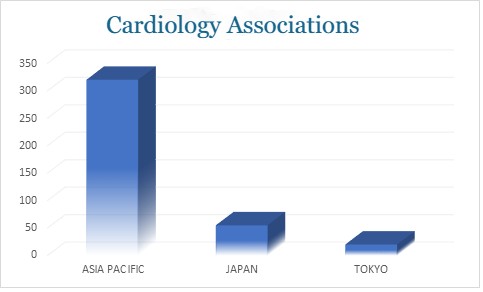
Heart failure, sometimes known as congestive heart failure, occurs when your heart muscle doesn't pump blood. Certain conditions, such as narrowed arteries in your heart (coronary artery disease) or high blood pressure, gradually leave your heart too weak or stiff to fill and pump efficiently.
Not all circumstances that can lead to heart failure can be overturned, but treatments can improve the signs and symptoms of heart failure and help you live longer. It Normally occurs when your lifestyle changes such as exercising, reducing sodium in your diet, managing stress and losing weight can improve your quality of life.
One way to prevent heart failure is to control conditions that cause heart failure, such as coronary artery disease, high blood pressure, diabetes or obesity.
What are the most common types of CHF?
The most common type of CHF is Left-sided CHF is. It occurs when your left ventricle doesn’t properly pump blood out to your body properly. As the condition progresses, fluid can build up in your lungs, which makes breathing difficult.
There are two kinds of left-sided heart failure:
- Systolic heart failure occurs when the left ventricle fails to contract normally. This reduces the level of force available to push blood into circulation. Without this force, the heart can’t pump properly.
- Diastolic failure, or diastolic dysfunction, happens when the muscle in the left ventricle becomes stiff. Because it can no longer relax, the heart can’t quite fill with blood between beats.
Right-sided CHF occurs when the right ventricle has difficulty pumping blood to your lungs. Blood backs up in your blood vessels, which causes fluid retention in your lower extremities, abdomen, and other vital organs.
It’s possible to have left-sided and right-sided CHF at the same time. Usually, the disease starts in the left side and then travels to the right when left untreated.
Symptoms thats Cause Heart Failure:
- Shortness of breath (dyspnea) when you exert yourself or when you lie down
- Fatigue and weakness
- Swelling (edema) in your legs, ankles and feet
- Rapid or irregular heartbeat
- Reduced ability to exercise
- Persistent cough or wheezing with white or pink blood-tinged phlegm
- Increased need to urinate at night
- Swelling of your abdomen (ascites)
- Very rapid weight gain from fluid retention
- Lack of appetite and nausea
- Difficulty concentrating or decreased alertness
- Sudden, severe shortness of breath and coughing up pink, foamy mucus
- Chest pain if your heart failure is caused by a heart attack
Causes of Heart Failure:
Heart failure often develops after other conditions have damaged or weakened your heart. However, the heart doesn't need to be weakened to cause heart failure. It can also occur if the heart becomes too stiff.
In heart failure, the main pumping chambers of your heart (the ventricles) may become stiff and not fill properly between beats. In some cases of heart failure, your heart muscle may become damaged and weakened, and the ventricles stretch (dilate) to the point that the heart can't pump blood efficiently throughout your body.
Over time, the heart can no longer keep up with the normal demands placed on it to pump blood to the rest of your body.
An ejection fraction is an important measurement of how well your heart is pumping and is used to help classify heart failure and guide treatment. In a healthy heart, the ejection fraction is 50 percent or higher which means that more than half of the blood that fills the ventricle is pumped out with each beat.
But heart failure can occur even with a normal ejection fraction. This happens if the heart muscle becomes stiff from conditions such as high blood pressure.
Heart failure can involve the left side (left ventricle), right side (right ventricle) or both sides of your heart. Generally, heart failure begins with the left side, specifically the left ventricle is your heart's main pumping chamber.
Risk factors associated with ICH:
- High blood pressure. Your heart works harder than it has to if your blood pressure is high.
- Coronary artery disease. Narrowed arteries may limit your heart's supply of oxygen-rich blood, resulting in weakened heart muscle.
- Heart attack. A heart attack is a form of coronary disease that occurs suddenly. Damage to your heart muscle from a heart attack may mean your heart can no longer pump as well as it should.
- Diabetes. Having diabetes increases your risk of high blood pressure and coronary artery disease.
- Some diabetes medications. The diabetes drugs rosiglitazone (Avandia) and pioglitazone (Actos) have been found to increase the risk of heart failure in some people. Don't stop taking these medications on your own, though. If you're taking them, discuss with your doctor whether you need to make any changes.
- Certain medications. Some medications may lead to heart failure or heart problems. Medications that may increase the risk of heart problems include nonsteroidal anti-inflammatory drugs (NSAIDs); certain anesthesia medications; some anti-arrhythmic medications; certain medications used to treat high blood pressure, cancer, blood conditions, neurological conditions, psychiatric conditions, lung conditions, urological conditions, inflammatory conditions and infections; and other prescription and over-the-counter medications.
Prevention of ICH :
The key to preventing heart failure is to reduce your risk factors. You can control or eliminate many of the risk factors for heart disease which includes high blood pressure and coronary artery disease, for example by making lifestyle changes along with the help of any needed medications.
Lifestyle changes you can make to help prevent heart failure include:
- Quit Smoking
- Controlling certain conditions, such as high blood pressure and diabetes.
- Staying physically active
- Eating healthy foods
- Maintaining a healthy weight
- Reducing and managing stress
Conference Highlights
- Heart Disease and Heart Failure
- Heart Diagnosis & Devices
- Cardiac Nursing and Healthcare
- Pediatric & Geriatric Cardiology
- Cardiovascular Surgeries
- Cardiologists
- Cardiovascular Toxicology and Pharmacology
- Cardio-Oncology
- Heart and Obesity
- Clinical Cardiology
- Cardiac Regeneration
- Cardiovascular Engineering
- Nuclear Cardiology & Cardiac CT
- Molecular Cardiology and Hypertension
- Vascular Heart Disease
- Myocardial and Pericardial Disease
- Pediatric Cardiology
- Women & Heart Disease
- Critical Cardiac Care
- Cardiovascular Diseases and Nutrition
To share your views and research, please click here to register for the Conference.
To Collaborate Scientific Professionals around the World
| Conference Date | March 25-26, 2020 | ||
| Sponsors & Exhibitors |
|
||
| Speaker Opportunity Closed | Day 1 | ||
| Poster Opportunity Closed | Click Here to View | ||
Useful Links
Special Issues
All accepted abstracts will be published in respective Our International Journals.
Abstracts will be provided with Digital Object Identifier by

